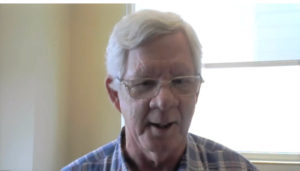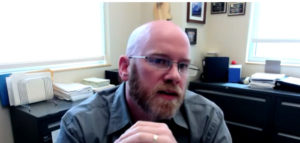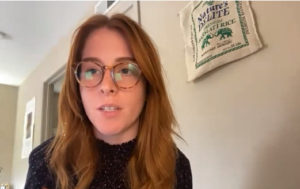Arkansas College Students Learn About COVID-19, Other Infectious Diseases at UAMS-led Workshop
| UAMS treated Arkansas college students interested in research or medical careers involving infectious diseases like COVID-19 to a workshop May 19.
Thirteen undergraduate students from six colleges heard presentations from UAMS scientists studying COVID-19 and other infectious diseases during the Zoom-based event sponsored by Arkansas INBRE (IDeA Networks of Biomedical Research Excellence).
The Arkansas INBRE program supports research in public and private four-year colleges across Arkansas by building research capacity and raising awareness about career opportunities in biomedical research. It is supported by the National Institutes of Health (NIH) Institutional Development Award (IDeA) Program, which was established to broaden the geographic distribution of NIH funding for biomedical and behavioral research.
Lawrence Cornett, Ph.D., professor of physiology and cell biology at UAMS, serves as principal investigator and director of Arkansas INBRE. Serving as this year’s workshop organizer was Thomas Kelly, Ph.D., associate director for cancer research training and education at the Winthrop P. Rockefeller Cancer Institute and an associate professor in the College of Medicine’s Department of Pathology.
The workshop featured researchers in the UAMS College of Medicine, primarily the Department of Microbiology and Immunology. Their work has contributed significantly to COVID-19 research at UAMS.
“This workshop was really in the wheelhouse of our Microbiology and Immunology Department,” Kelly said. “It’s one of our strongest departments with a lot of young faculty who are excited about their work. UAMS researchers really rose to the challenge of COVID-19, and it was fun to hear their stories.”
The students liked it, too, based on their chat messages in Zoom and an anonymous feedback survey after the workshop.
“This was an amazing experience!” said Cassidy Heise, a student at Hendrix College.
“This was great! Thanks!” said Melanie Joan, at Southern Arkansas University.
“Thank you all so much. I really enjoyed this!” said Savannah Wiegel, at Hendrix.
Post-workshop feedback on the most important thing learned, included:
- “I think the most important thing was learning how collaborative/team-based many of these infectious diseases projects are.”
- “I learned that you can always venture into new areas of research, and that you’re never alone in doing research, always having peers that can help as well.”
- The ways in which researchers involved in different fields are able to connect and collaborate to problem solve.
Feedback on what was most helpful about the workshop included:
- “I enjoyed hearing each professor’s research project and the steps they took to their career in research.”
- “Getting to connect with UAMS faculty and learn about the research labs on UAMS campus!”
- “I really enjoyed the tips for finding research that is right for students like me as well as the emphasis on communication for these projects.”
Other College of Medicine faculty who participated in the event, and their topic areas:
- Jon Blevins, Ph.D., associate professor, Department of Microbiology and Immunology (Lyme disease/relapsing fever)
- Karl Boehme, Ph.D., associate professor, Department of Microbiology and Immunology (Development of a new COVID-19 antibody test and Reovirus)
- Bobby Boyanton Jr., M.D., professor, Department of Pathology (clinical lab setup for rapid and high volume COVID-19 testing)
- Robert Bradsher Jr., M.D., professor, Department of Internal Medicine, Division of Infectious Diseases (Tick-borne disease)
- Samantha Kendrick, Ph.D., assistant professor, Department of Biochemistry and Molecular Biology (HIV and lymphoma)
- Amanda Novack, M.D., Infectious Disease, UAMS and Baptist Health (COVID-19)
- Roger Pechous, Ph.D., assistant professor, Department of Microbiology and Immunology (Pneumonic plague)
- Juan Carlos Rico, M.D., assistant professor, Department of Internal Medicine, Division of Infectious Diseases (HIV)
- Mark Smeltzer, Ph.D., professor, Department of Microbiology and Immunology (Staph A /biofilms)
- David Ussery, Ph.D., professor, Department of Biomedical Informatics (COVID-19 tracking – genomic sequencing)



